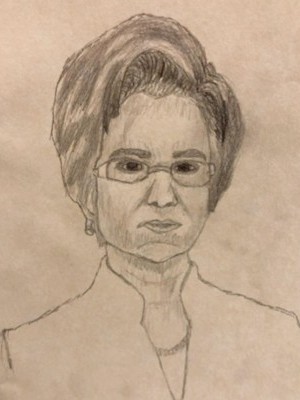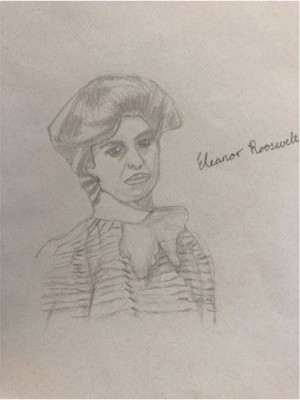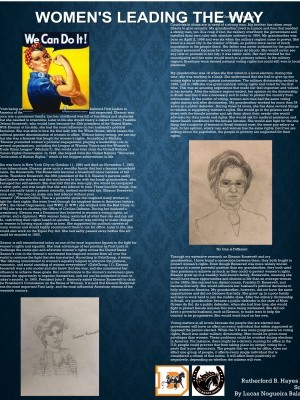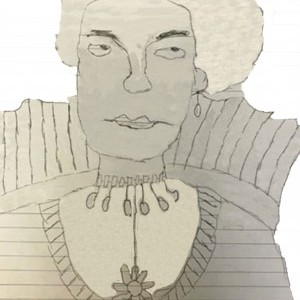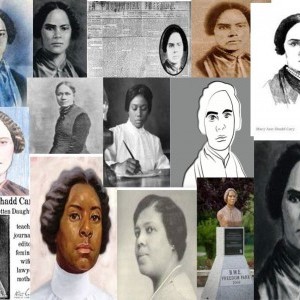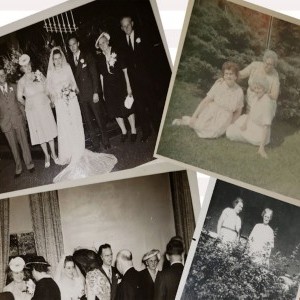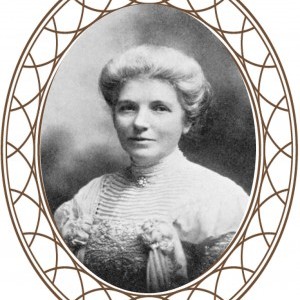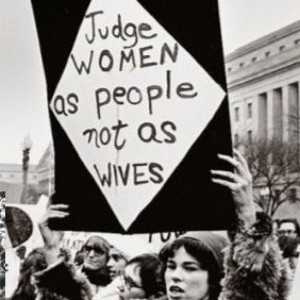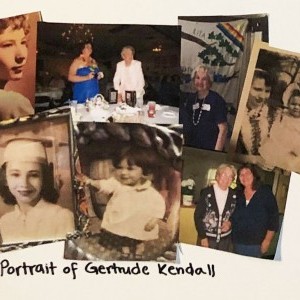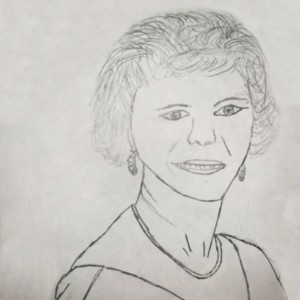Lucas Nogueira Balaniuc
Rutherford B. Hayes High School | Delaware City, OH | 10th Grade
Inspirational Family Member
My Grandmother - Life Under Dictatorship
Countries in chaos are in need of a strong man. Big brother has taken away liberty to give security. My grandmother lived in a place and time that needed a strong man, too. In a coup d’état, the military overthrew the government and installed their own ruler with absolute authority in 1964. My grandmother was born on April 2, 1958, and was six when the military regime came to power. She lived in a small city in the interior of Brazil, so politics were never of much importance to the people there. Her father was never bothered by the police or military personnel because he would always do his job. She would never see any riots or protests in her city; it was rather calm. Her dad worked for the municipality and her mom would teach at a primary school. In the military regime, Brazilians were denied national voting rights but could still vote in local elections.
My grandmother was 18 when she first voted in a local election; during this time, she was working in a bank. She understood that she had to give up her voting rights to protect against communism. The military dictatorship ended in 1985, and in 1989 she was given national voting rights and voted for the first time. This was an amazing experience that made her feel important and valued in her society. After the military regime ended, her opinion on the dictatorship in Brazil was that it was a necessary evil in order to protect the country from communism. In the matter of voting, women and men had the same voting rights during and after dictatorship. My grandmother worked for more than 34 years as a public defender. During those 34 years, she has done several things in relation to supporting women’s rights. She would go to the prisons and sit down with the female inmates and ask them about their needs--she would advocate for their needs and rights. She would ask for medical assistance and better health conditions for the female inmates. She would also fight for the one thing that a majority of women in Brazil desired most, the same pay salary as men. In her opinion, every man and woman has the same rights, but if we are talking about the population, the people in poverty are neglected for their rights.
Historical Figure I Admire
Eleanor Roosevelt
From being an insecure child to the most important and beloved First Ladies in America of the 20th century, is a woman to be admired and respected. Eleanor was born into a prominent family, but her childhood was full of hardships and obstacles that she needed to overcome. Later in life she would marry a distant cousin, Franklin Delano Roosevelt, who would later become the 32th president of the United States. With Eleanor at his side, she had the most influence on her husband’s political decisions. She was able to hire the first lady into the White House, which lessen the political gender discrimination of women in office. Without being wrong, we can say that she was a feminist that fought for women’s rights. According to Michals, “Eleanor promoted women’s political engagement, playing a leadership role in several organizations, including the League of Women Voters and the Women’s Trade Union League” (Michals 7). She would also later chair the United Nations Human Rights Commission. In 1948, she helped write the United Nations “Universal Declaration of Human Rights,” which is her biggest achievement in life.
She was born in New York City on October 11, 1884 and died on November 7, 1962 from tuberculosis. Eleanor grew up in a wealthy family that had a famous household name, the Roosevelts. The Roosevelts became a household name because of her uncle, Theodore Roosevelt, the 26th president of the U.S.. Eleanor’s parents sadly died before she was ten and she was forced to live with her harsh grandmother, who damaged her self-esteem. She was told that she was ugly; she would be compared to other girls, and was taught that she was inferior to men. These horrible things, that would normally harm a person mentally, instead motivated her. Eleanor Roosevelt once said, “No one can make you feel inferior without your consent” (WomenOn20s). This is a powerful quote that inspired many women to fight for their rights. She even lived through the toughest times in American history: WW1, the Great Depression, and WW2. In WW1 she worked with the Red Cross; in WW2 she was co-chairing the Office of Civilian Defense. During her husband’s presidency, Eleanor was a Democrat that believed in women’s voting rights, an activist, and a diplomat. With women being restricted in what they could and couldn't do, their rights being restricted based on gender, Eleanor was striving to make changes for women to having equal rights with men. She supported the political careers of many woman and would highly recommend them to run for office. Later in life, she would also work on the Equal Pay Act. She had sadly passed away before this act could be enacted in 1963.
Eleanor is still remembered today as one of the most important figures in the fight for women’s rights and equality. She took advantage of her position as First Lady to challenge the status quo and advocate women’s rights across the United States. Eleanor’s role in the women’s movement has inspired women from all over the world to continue the fight that she has started. According to Gale Group, it states, “Her lifelong commitment to women’s equality helped to advance the political, economic, and social standing of women everywhere” (GaleGroup 11). Eleanor Roosevelt was a role model and she knew that she was, and she maximized her influence to achieve these goals. Her contributions to the women’s movement gave women the opportunity to express themselves, and not just be subjected to men in today’s society. In 1960, President John F. Kennedy asked Eleanor Roosevelt to chair the President’s Commission on the Status of Women. It is said that Eleanor Roosevelt was the most important First Lady, and the most influential American woman of the twentieth century.
What the Project Means to Me
Through my extensive research on Eleanor Roosevelt and my grandmother, I have found a connection between them: they both fought to protect women’s rights. Even though Roosevelt was more widely known and was in a more powerful position than my grandmother, they both used their positions to achieve as much as they could to protect women’s rights. Eleanor grew up in a wealthy well-known family, The Roosevelts, meaning she would have more opportunities and choices in life than an average woman in the 1900s. She married her distant cousin, Franklin D. Roosevelt, and became First Lady. She would influence her husband’s political decisions to help women in America.
My grandmother, however, did not have the same opportunities and did not become first lady. She grew up in a poor family, and had to work hard to join the middle class. After the military dictatorship in Brazil, my grandmother became a public defender in the state of Mato Grosso do Sol. As a public defender, when she had free time, she would fight to protect female inmates that were being mistreated. She did not have a powerful husband, such as Eleanor, to make laws to help the country to be progressive. She would work hard on her own.
Voting matters at all levels because the people that are elected into government will have an effect on every individual that either supported or opposed the person elected. While the U.S was more progressive on voting rights, Brazil was under military dictatorship. Men would be given more privileges than women. These problems could be avoided during elections in America. For instance, there might be a dictator running for office in the U.S; people could prevent that from taking place by simply voting for a party that is pro democracy. The people that we vote for office does not affect one group of people, it affects every single individual that is considered a citizen of that nation. It will affect them positively or negatively, depending on whether the citizens will vote.
Explore the Archive
More From This Class
Click on the thumbnails below to view each student's work.Deadline Extended
There's still time to join Women Leading the Way.
Become a part of our storytelling archive. Enroll your class today.
Join the Project

